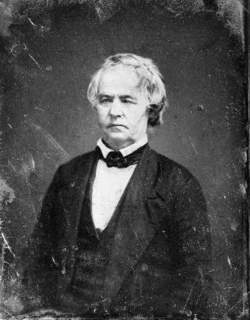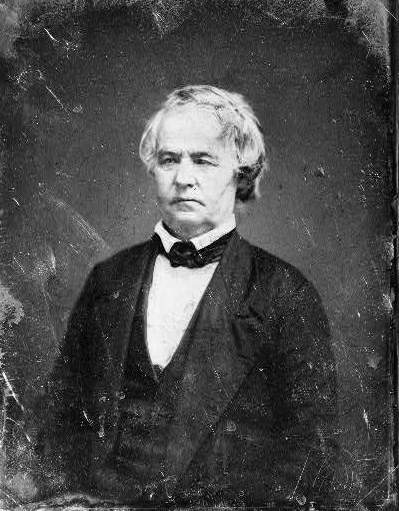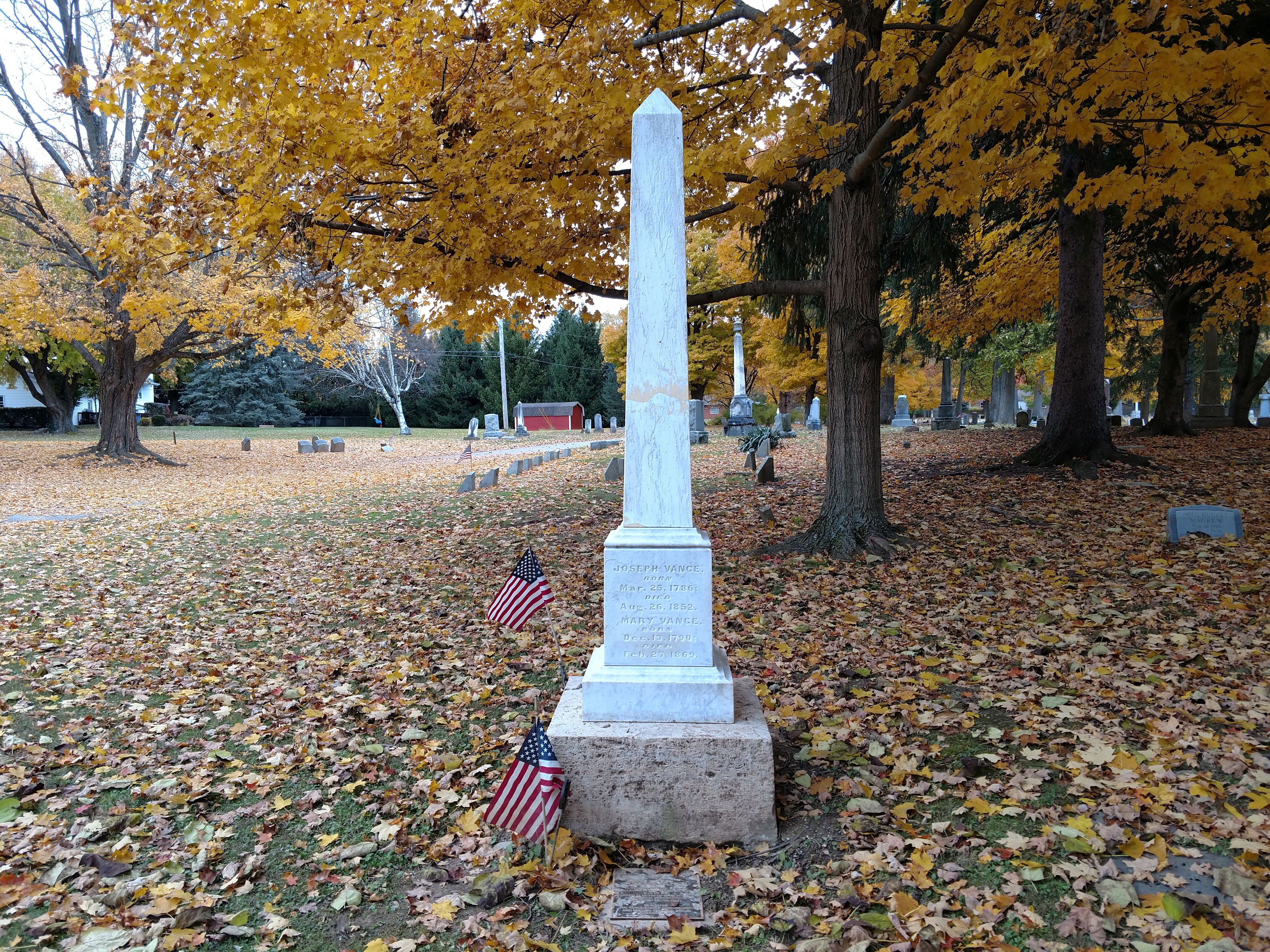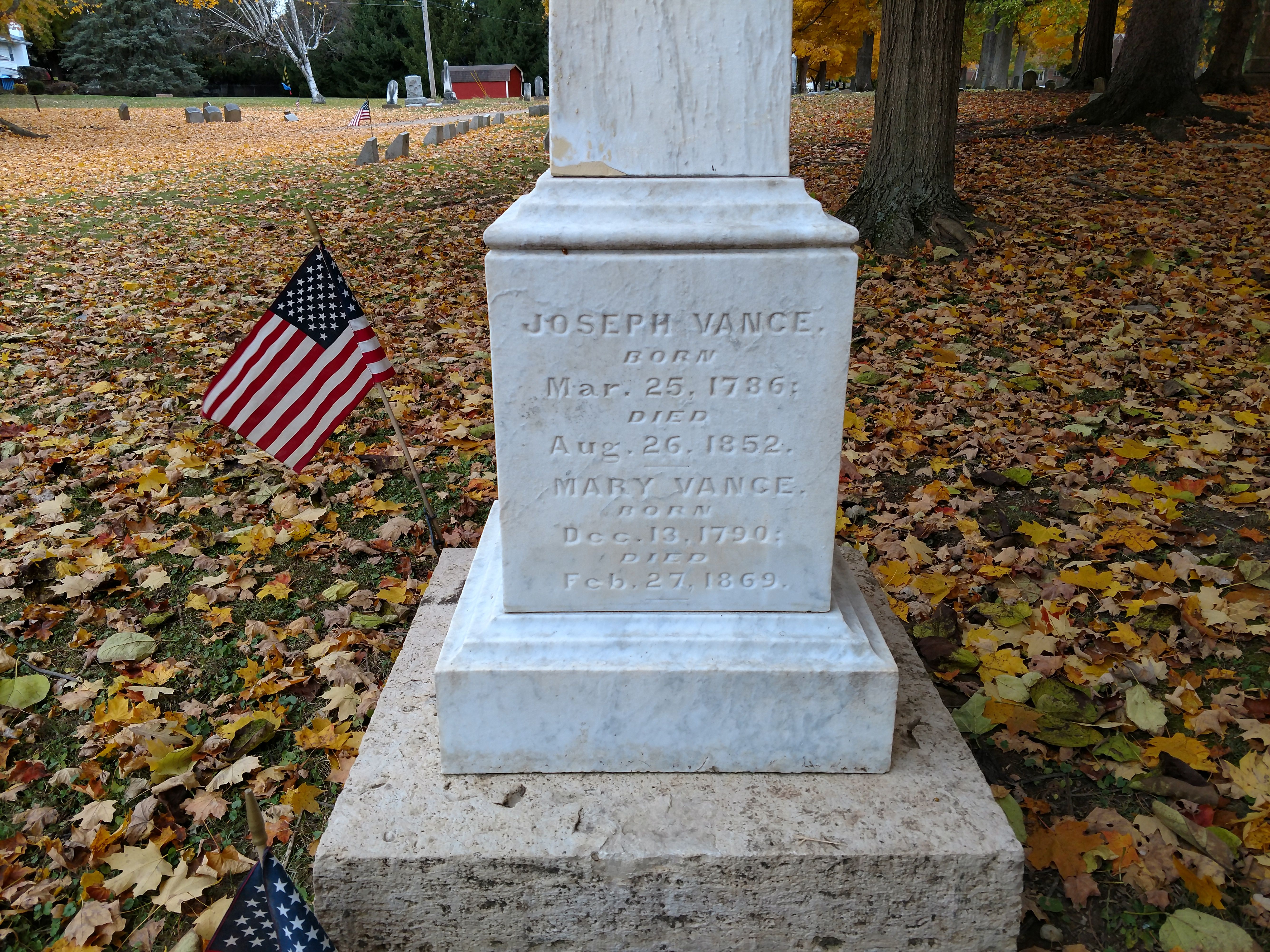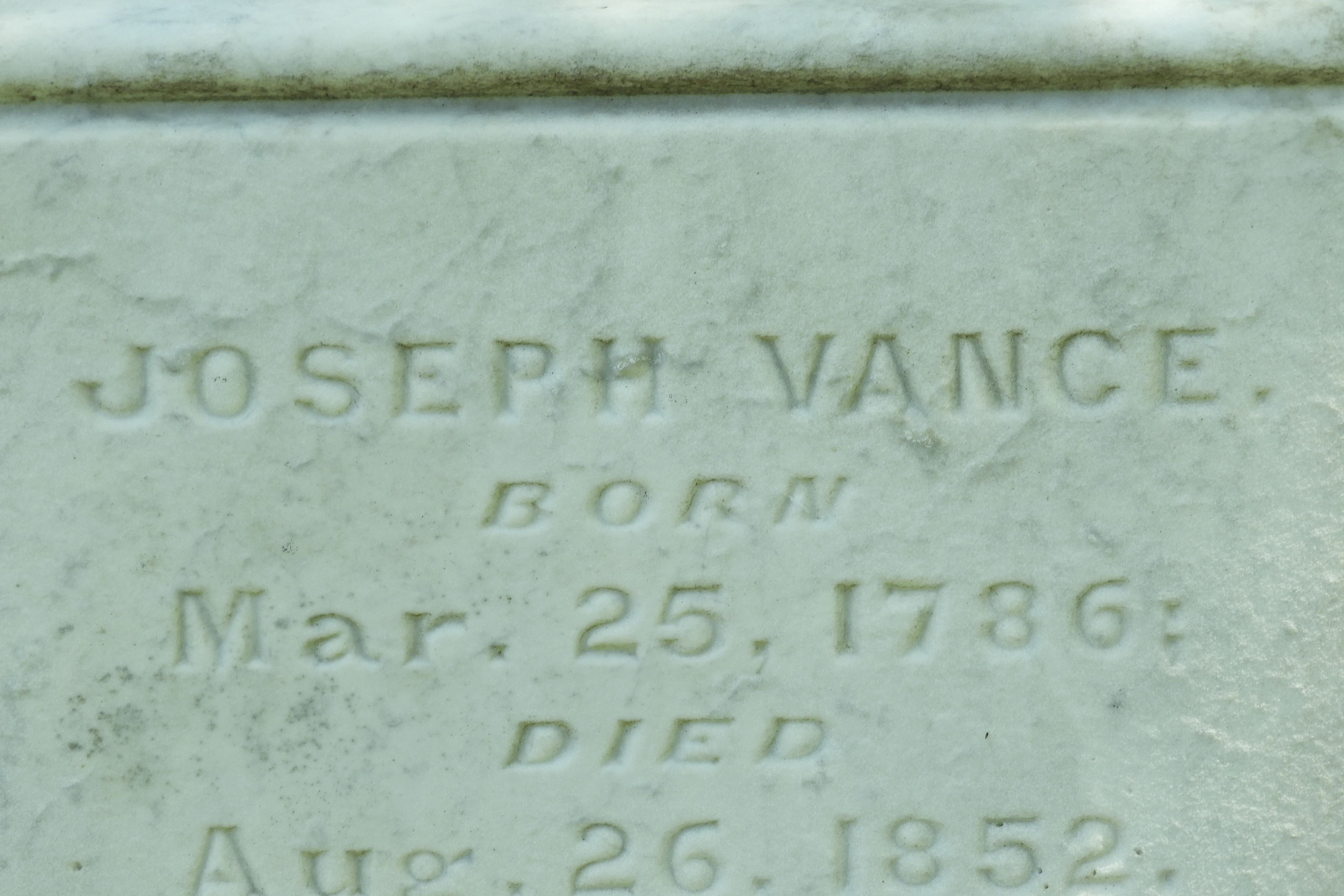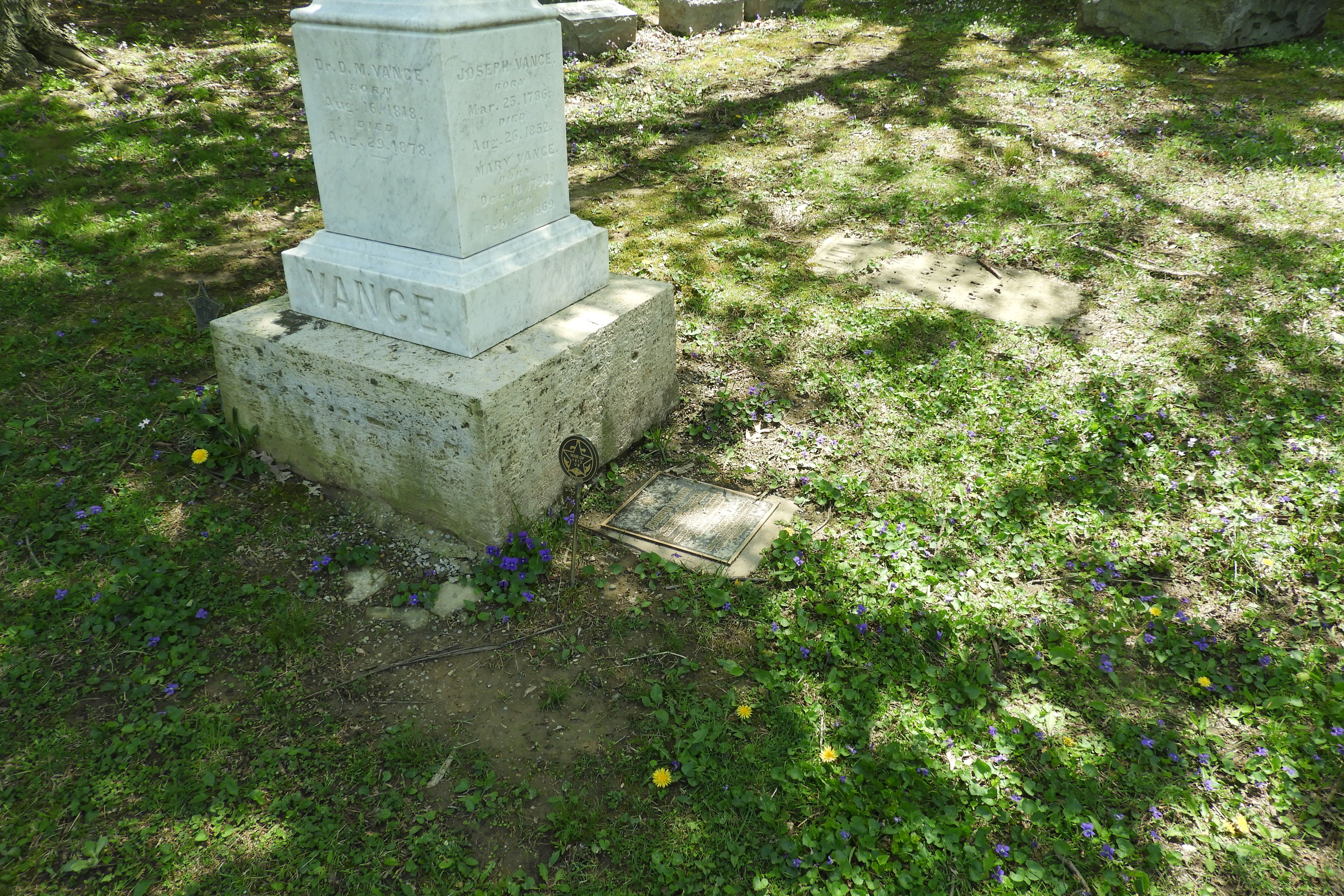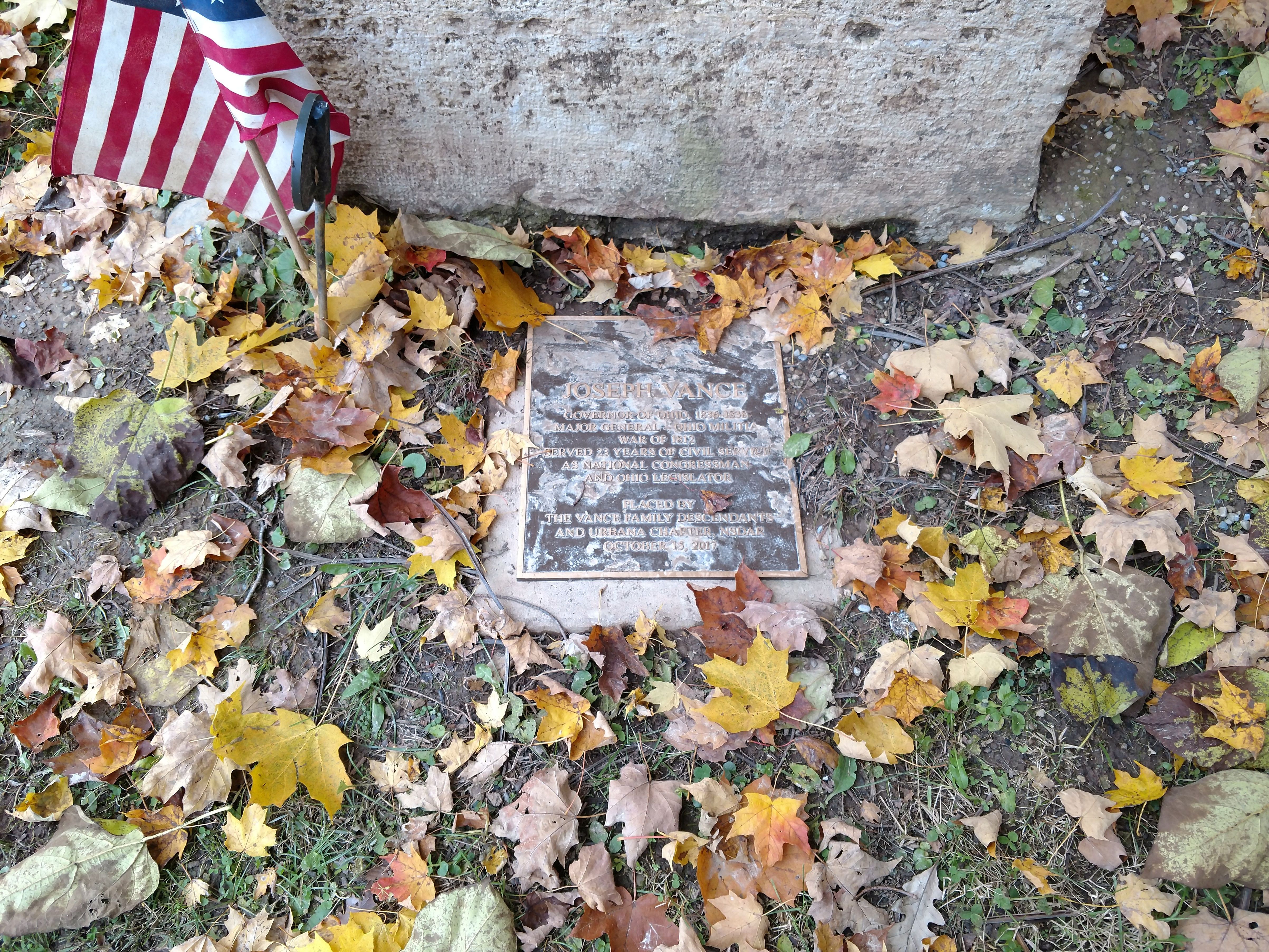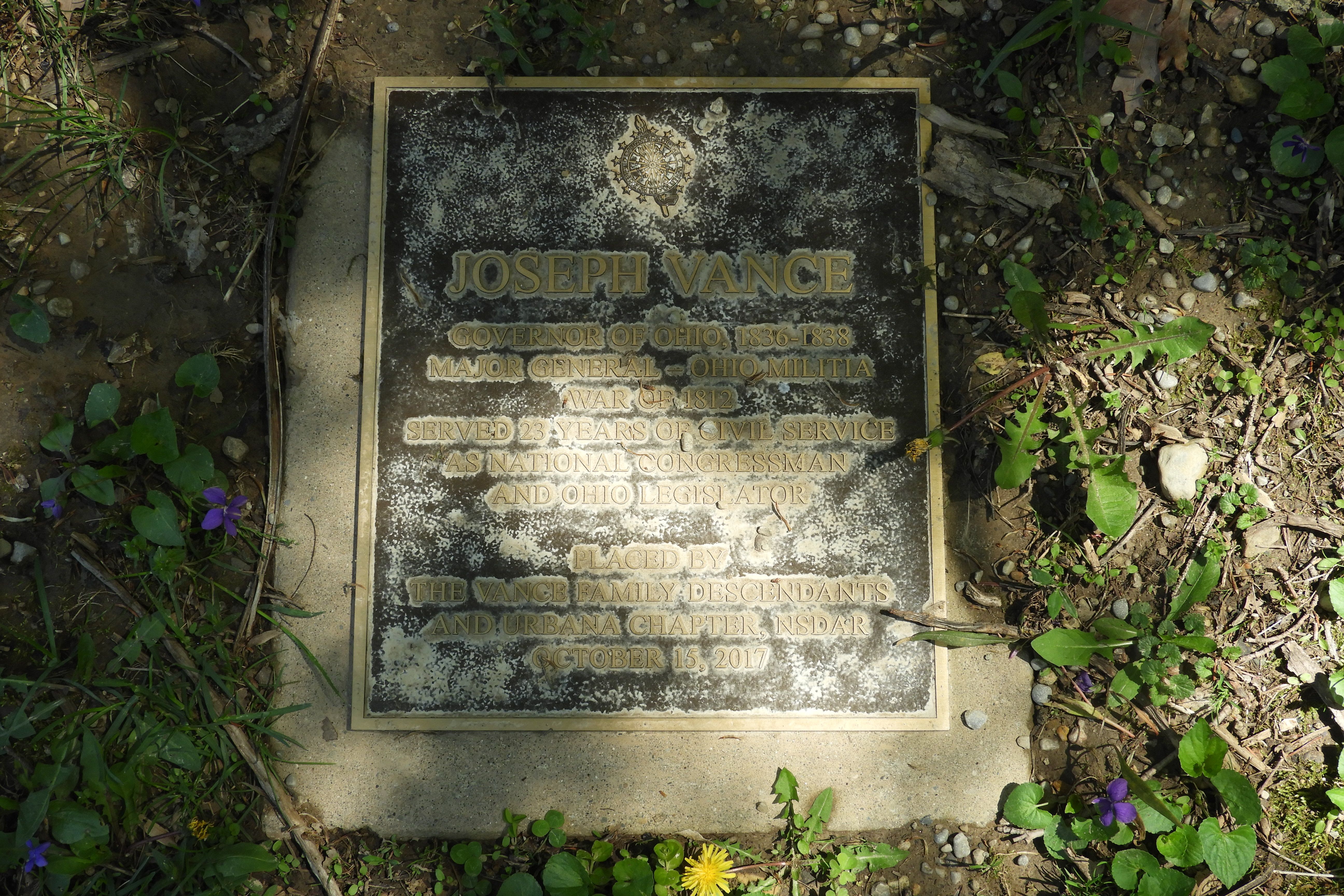Joseph Vance, the tenth Governor of Ohio, was born in Washington County, Penn., March 21, 1781. He was of Scotch-Irish descent, and his father emigrated to the new Territory when Joseph was two years of age. He located on the southern bank of the Ohio, building a solid block house. This formed a stronghold for his neighbors in case of danger. In 1801, this pioneer decided to remove north of the Ohio River, and eventually settled in Urbana. Joseph had the primitive advantages of the common schools, and became proficient in handling those useful implements—the plow, ax and rifle. The first money he earned he invested in a yoke of oxen. He obtained several barrels of salt, and set out on a speculative tour through the settlements. He traveled through a wilderness, over swamps, and surmounted serious difficulties. At night he built a huge fire to terrify the wolves and panthers, and laid down to sleep beside his oxen, frequently being obliged to stand guard to protect them from these ferocious creatures. Occasionally he found a stream so swollen that necessarily he waited hours and even days in the tangled forest, before he could cross. He often suffered from hunger, yet he sturdily persevered and sold his salt, though a lad of only fifteen years. When he attained his majority, he married Miss Mary Lemen, of Urbana. At twenty-three, he was elected Captain of a rifle company, and frequently led his men to the front to fight the Indians prior to the war of 1812. During that year, he and his brother piloted Hull's army through the dense forests to Fort Meigs. In 1817, with Samuel McCullough and Henry Van Meter, he made a contract to supply the Northwestern army with provisions. They drove their cattle and hogs many miles, dead weight being transported on sleds and in wagons. He engaged in mercantile business at Urbana and Fort Meigs—now Perrysburg.
While thus employed, He was elected to the Legislature, and there remained four years. He then purchased a large tract of land on Blanchard's Fork, and laid out the town of Findlay. He was sent to Congress in 1821, and was a member of that body for fifteen years. In 1836, he was chosen Governor of Ohio. Again he was sent to Congress in 1842. While attending the Constitutional Convention in 1850, he was stricken with paralysis, and suffered extremely until 1852, when he died at his home in Urbana.
Joseph Vance, the tenth Governor of Ohio, was born in Washington County, Penn., March 21, 1781. He was of Scotch-Irish descent, and his father emigrated to the new Territory when Joseph was two years of age. He located on the southern bank of the Ohio, building a solid block house. This formed a stronghold for his neighbors in case of danger. In 1801, this pioneer decided to remove north of the Ohio River, and eventually settled in Urbana. Joseph had the primitive advantages of the common schools, and became proficient in handling those useful implements—the plow, ax and rifle. The first money he earned he invested in a yoke of oxen. He obtained several barrels of salt, and set out on a speculative tour through the settlements. He traveled through a wilderness, over swamps, and surmounted serious difficulties. At night he built a huge fire to terrify the wolves and panthers, and laid down to sleep beside his oxen, frequently being obliged to stand guard to protect them from these ferocious creatures. Occasionally he found a stream so swollen that necessarily he waited hours and even days in the tangled forest, before he could cross. He often suffered from hunger, yet he sturdily persevered and sold his salt, though a lad of only fifteen years. When he attained his majority, he married Miss Mary Lemen, of Urbana. At twenty-three, he was elected Captain of a rifle company, and frequently led his men to the front to fight the Indians prior to the war of 1812. During that year, he and his brother piloted Hull's army through the dense forests to Fort Meigs. In 1817, with Samuel McCullough and Henry Van Meter, he made a contract to supply the Northwestern army with provisions. They drove their cattle and hogs many miles, dead weight being transported on sleds and in wagons. He engaged in mercantile business at Urbana and Fort Meigs—now Perrysburg.
While thus employed, He was elected to the Legislature, and there remained four years. He then purchased a large tract of land on Blanchard's Fork, and laid out the town of Findlay. He was sent to Congress in 1821, and was a member of that body for fifteen years. In 1836, he was chosen Governor of Ohio. Again he was sent to Congress in 1842. While attending the Constitutional Convention in 1850, he was stricken with paralysis, and suffered extremely until 1852, when he died at his home in Urbana.
Bio by: K Guy
Family Members
Advertisement
See more Vance memorials in:
Explore more
Sponsored by Ancestry
Advertisement
